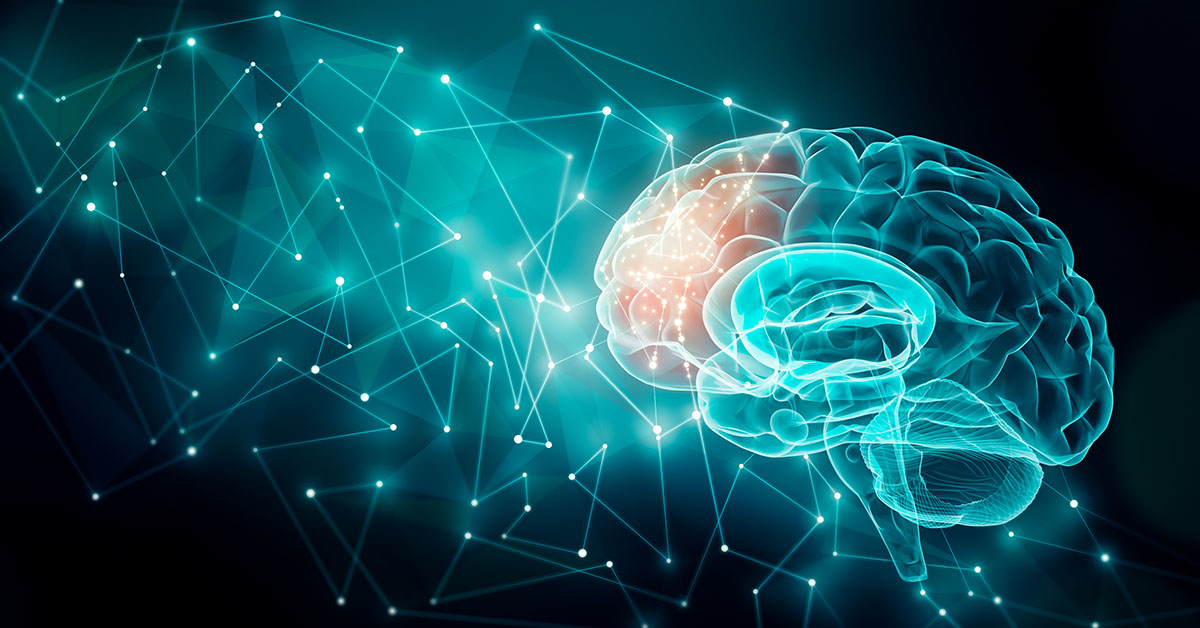
For Brain Awareness Week (March 16-22) we’re going to explore the fascinating field of brain science. While every animal has a brain, the human brain is unique and arguably the most complex thing in the universe. It gives us the power to speak, think, feel and move. It controls everything we will ever think or do in our lifetime.
But, how does our brain work? Our brain contains one hundred billion nerve cells that send and receive signals (or messages) to various parts of our body through our nervous system. These cells, or neurons, communicate information back and forth from our brain to our major organs and senses. Together, they are responsible for coordinating important functions such as breathing, thoughts, emotions, heart rate and muscle movement.
It’s no wonder that any damage to our nerves can dramatically change our quality of life – both physically and mentally. Nervous system problems may occur slowly with a gradual loss of function (degenerative) or it can be sudden and life-threatening (acute). Symptoms can range from mild to severe that are caused by a condition, disease or injury. When problems occur, it’s important to understand where it occurred and how it’s impacting our body and mind.
The location of the problem is critical because different parts of the brain control various parts of who we are. The cerebrum controls higher functions like touch, hearing, speech, reasoning, emotions, and learning. The cerebellum coordinates muscle movements, posture, and balance. The brainstem performs many automatic functions such as breathing, sleep cycles, sneezing, and digestion.
To figure out what’s causing these symptoms we turn to brain science. The science of the brain – just like the brain itself – is complex. Brain science – or neuroscience – studies the architecture of the brain and maps how each individual neuron operates. Scientists use imaging to examine how learning, aging, and disease physically change our brain. However, advances in brain science are relatively new.
In the early 1990s, President George H.W. Bush designated a large national effort called, “The Decade of the Brain.” The purpose was “to enhance public awareness of the benefits to be derived from brain research.” During the 1990s, several accomplishments occurred including the development of fMRI neuroimaging, genetic mutation discoveries, and second-generation antidepressants. Up until this point, brain research had largely focused on the function and purpose of neurons and the mechanics of the brain.
Then a bigger call-to-action began to bubble-up in the scientific community. Ten neuroscientists proposed a project called, Decade of the Mind, in 2007 calling for research that would change all of our lives for the better. Researchers wanted to know how the mechanics of the brain affect our behavior and thoughts. This would require an international effort of multiple disciplines working together to answer this question including engineering, computer science, math, linguistics, and psychology.
The project has since then advanced our understanding of how complex behaviors are related to brain activity. A new field of study and expertise emerged called, “Cognitive Neuroscience” – a blend of brain science and psychiatry. By embracing this connection between psychiatry and neurobehavioral sciences, we are able to more accurately diagnose and treat patients who are experiencing a wide variety of conditions affecting the brain.
Thanks to researchers and the increased support for brain research, brain science has made tremendous advances in neurotechnology that include brain imaging, pharmaceuticals, cancer scanning, stroke rehabilitation and much more. The field has increased our depth of understanding including how the brain influences lifestyles and personalities. Modern science can now help control depression, improve motor coordination, alleviate phantom pain perception and much more.
Neurological conditions can affect a vast part of our lives and bodies. If you are suffering from neurological symptoms, we’re here to help. Two of our physicians at Regional Neurological Associates are dually trained in both neurology and psychiatry. We are skilled in managing conditions such as attention deficit disorder (ADD), mood disorders such as depression, mania, anxiety, and even psychosis. If you have questions or concerns about your neurological health, call (718) 515-4347 to make an appointment.


